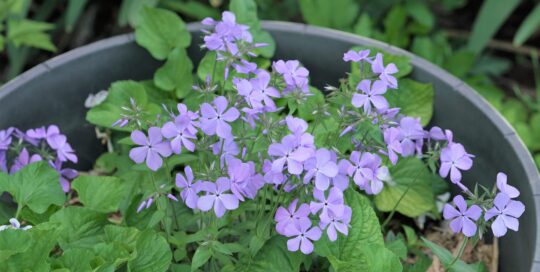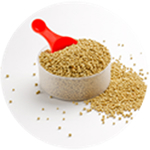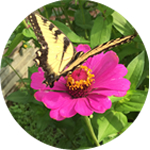Garden spiders: an ancient gift from a goddess
Views: 403
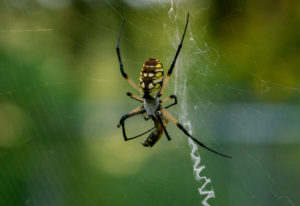
According to ancient mythology, Arachne, daughter of a shepherd, was so skilled at weaving that she boasted her skill was equal to the goddess, Athena. Hearing rumor of this, Athena, disguised as an old woman, challenged Arachne to a weaving contest. When their patterns were complete, Athena realized that Arachne’s weaving was flawless, even better than her own. Arachne’s tapestry also depicted scenes of the gods’ excesses and crimes, and this enraged Athena. She threw off her disguise and hit Arachne on the head with her shuttle three times. Terrified and humiliated, Arachne hanged herself. Athena, remorseful, turned Arachne into a spider, so she and her garden-spider ancestors could continue spinning, bringing beauty to the world forever.
Scientifically, spiders are called arachnids after Arachne, and Arachne’s weaving does, indeed, bless our gardens today, an echo of that ancient story. Orbweavers spin arguably the most beautiful spider webs. Argiope orbweavers and Spotted orbweavers are common spiders that you might see in your own garden.
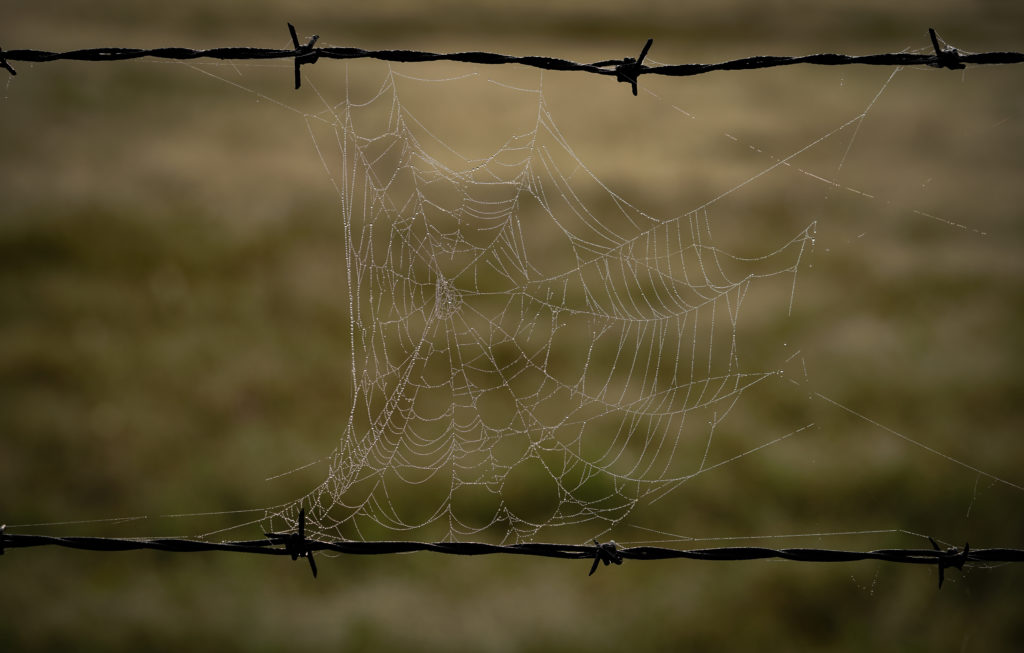
A dew-covered orbweaver’s web.
Argiope
Argiope spiders are known by many names including yellow garden spiders, black and yellow Argriope, zipper spiders, writing spiders, and whatever words are screamed by the unsuspecting humans who accidentally run into them or their sticky webs. Compared to most spiders, they are giant. And they are typically hanging mid-air, at head-level, suspended by their intricate webs in places where we might not wish a giant spider to hang.
Yet, they are beautiful residents of our yards and gardens, protecting us from flies, grasshoppers, and many other pests. These docile spiders are not aggressive, and rarely, if ever, bite. They are not considered poisonous if they do. An orbweaver bite might feel like a bee or wasp sting, with similar complications.
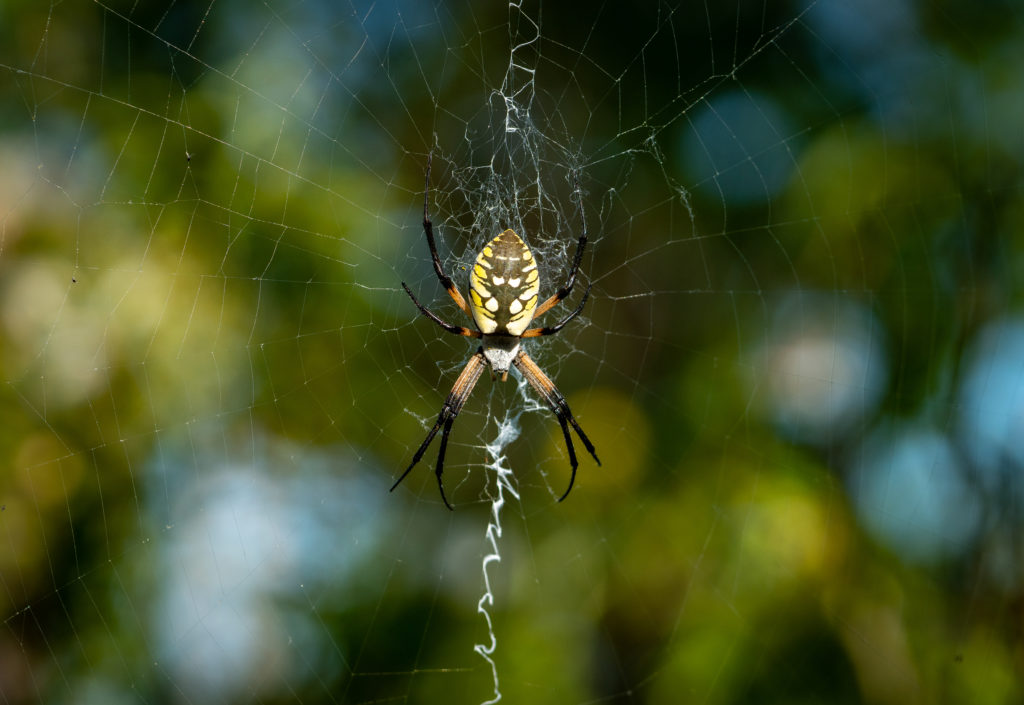
Argiope aurantia.
I love them dearly.
Two species are most common in North America: the yellow garden spider, Argiope aurantia, and the banded Argiope, Argiope trifasciata. In both species, the males tend to be smaller and more slender than the females, though both sexes will build webs. You can identify them by the zigzag pattern running down the center of their webs. While the function of these patterns is not known for certain, it may be that they serve to make their webs more visible to birds.
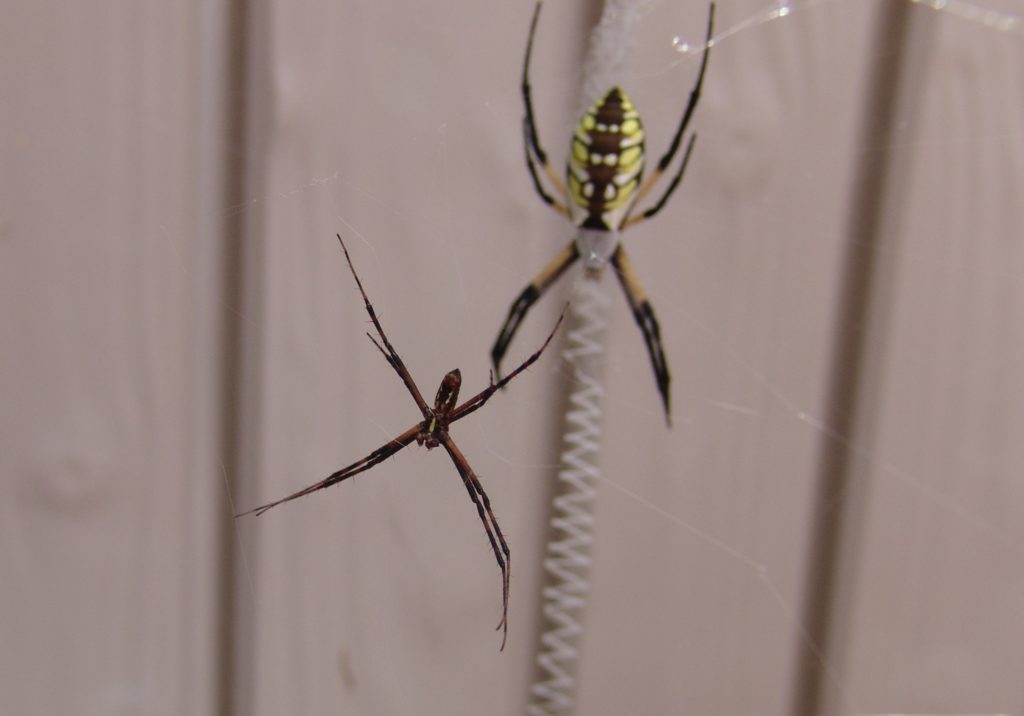
A male Argiope aurantia with a female behind him.
Spotted Orbweavers
Spotted orbweavers, Neoscona crucifera, are less glamorous than their shiny black and yellow cousins. They are smaller, and typically brownish or tan, with intricate black spots or lines arranged in patterns that serve as excellent camouflage. Some segments of their legs may appear to be deep red, with spike-like bristles. Being nocturnal, you may not see these spiders until they start weaving their webs at dusk or at night. There’s a good chance you won’t see them at all, unless you spot their dew-covered webs in the first light of dawn. If their webs remain undamaged, these spiders will spend the day hiding in a corner of their web, often in the curl of a leaf or other debris.
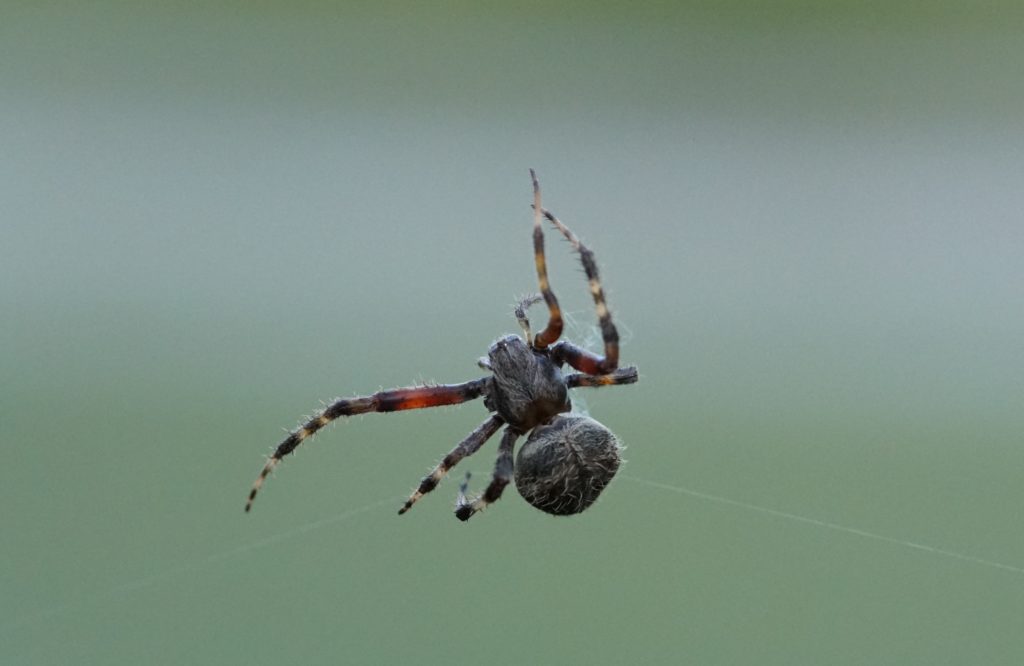
Although lacking spots, this is a spotted orbweaver.
Like Argiope orbweavers, spotted orbweavers feed on insects, including moths and many garden pests. They are beneficial to the garden, maintaining balance and adding geometric patterns that are worthy of the ancient gods. Arachne’s children are graceful additions to our cherished spaces.
Meet Leslie Miller
Leslie Ann Miller shares 3.5 acres in rural Oklahoma with birds, butterflies and wide variety of animals. She is currently transforming her yard with plantings…
Leslie's Recent Posts
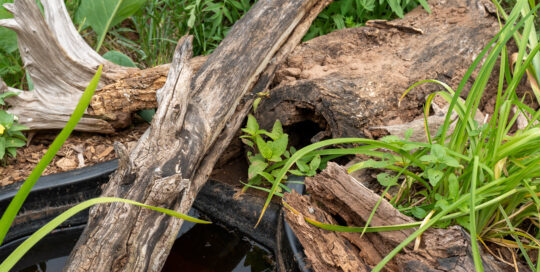
Creating microclimates and microhabitats to benefit wildlife
